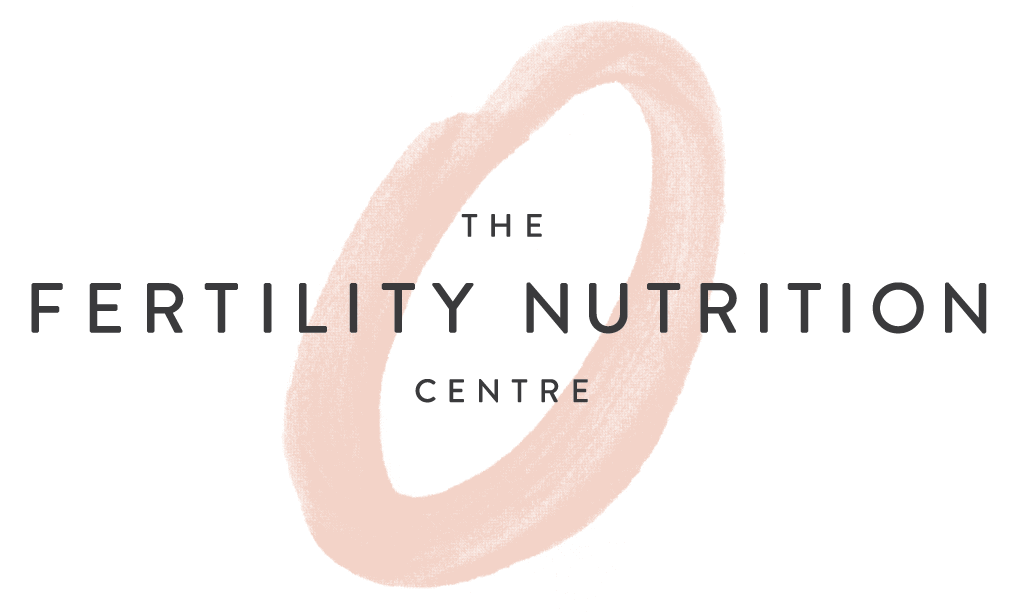
5 Dietary Tips to Enhance Egg Health and Improve FertilityDiscover how proper nutrition can support egg health and boost fertility by Sarah Laver
When trying to conceive, the health of your eggs plays a vital role in successful conception. Fertility nutritionist and embryologist Sarah Laver, also known as The Embryologist Nutritionist, shares five essential dietary tips to help enhance egg health and improve fertility. These nutritional strategies are not only beneficial for reproductive health but also for overall well-being.
1.Leafy Greens and Folate for Egg Health
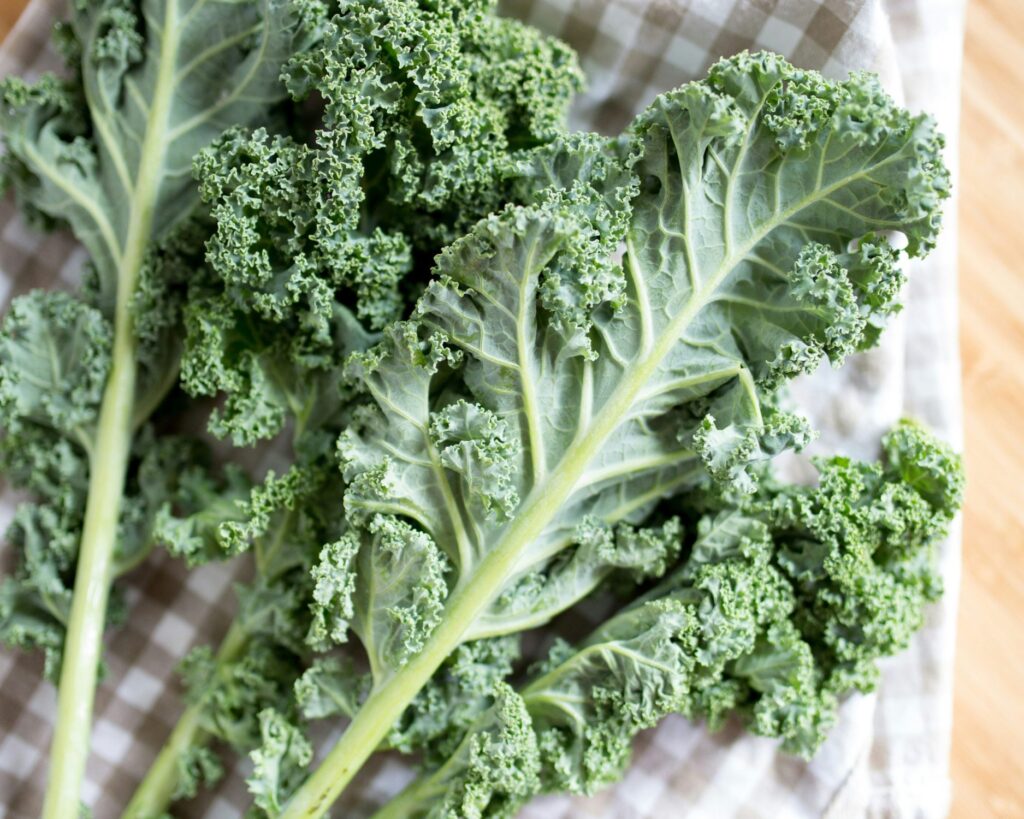
Folate, found in leafy greens like spinach, kale, broccoli, and Brussels sprouts, is a B vitamin that plays a crucial role in DNA synthesis and growth. This makes it particularly important for egg health. Folate also supports methylation, a process essential for optimal egg development. As folate is one particular nutrient that medical practitioners recommend supplementing with for fertility, Sarah recommends a methylated folate supplement in addition to consuming folate-rich foods. This is because some individuals may not convert synthetic folic acid efficiently.
Fertility Tip: Incorporate leafy greens into your daily meals and ensure your prenatal vitamins contain at least 400 micrograms of methylated folate. This can help prevent neural tube defects and support healthy egg development.
2. Omega-3 Fatty Acids for Membrane Flexibility
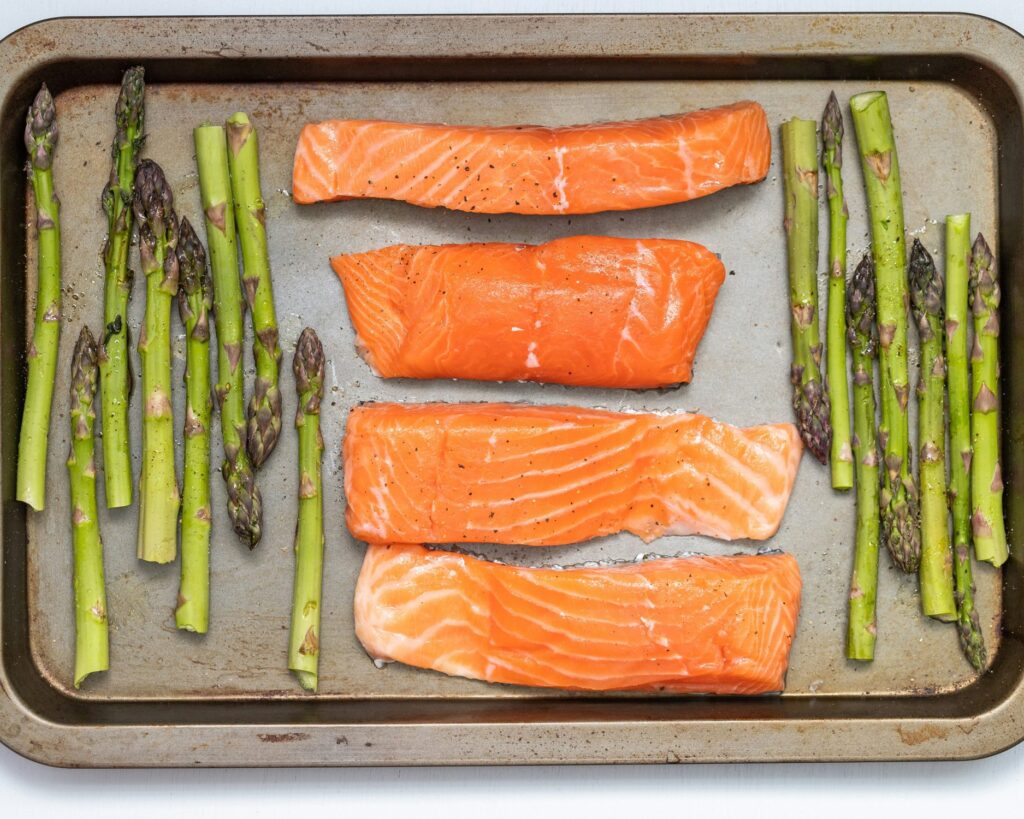
Omega-3 fatty acids are essential for maintaining the flexibility of the egg’s membrane, which is crucial for sperm binding and proper cell-to-cell communication. These fatty acids also provide anti-inflammatory benefits, supporting overall cellular health and egg quality. Oily fish such as salmon, sardines, and mackerel are excellent sources of omega-3s.
Fertility Tip: Incorporate omega-3-rich foods into your diet regularly, or consider a high-quality omega-3 supplement if you’re not consuming fish.
3. Choosing Organic to Minimise Toxin Exposure

Reducing your exposure to toxins, especially endocrine-disrupting chemicals (EDCs), is important for hormone balance and egg quality. Pesticides in conventionally grown produce may negatively impact fertility. While we can’t completely eliminate environmental toxins, choosing organic where possible helps minimise exposure.
Fertility Tip: Focus on buying organic versions of the most pesticide-heavy produce using the Dirty Dozen list, and save money by opting for conventional versions of the least contaminated foods from the Clean 15 list.
4. Eating the Rainbow to Boost Antioxidants
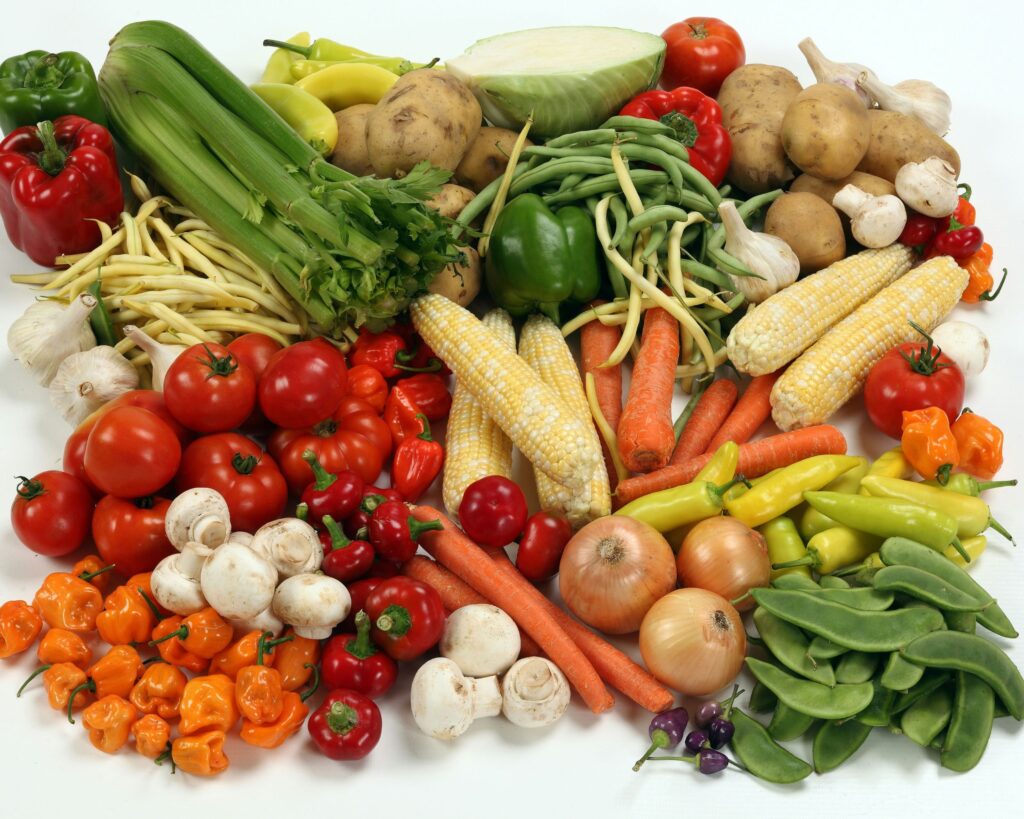
Inflammation and oxidative stress can damage cells, including eggs, which may negatively affect fertility. Antioxidants, which help combat oxidative stress, are abundant in colourful fruits and vegetables. Eating a wide variety of colours ensures you’re getting a diverse range of antioxidants, which help protect your eggs and support fertility.
Fertility Tip: Aim to “eat the rainbow” by adding a wide variety of colourful fruits and vegetables to your meals. This will boost your intake of antioxidants and support egg health.
5. Fibre for Gut and Hormonal Health
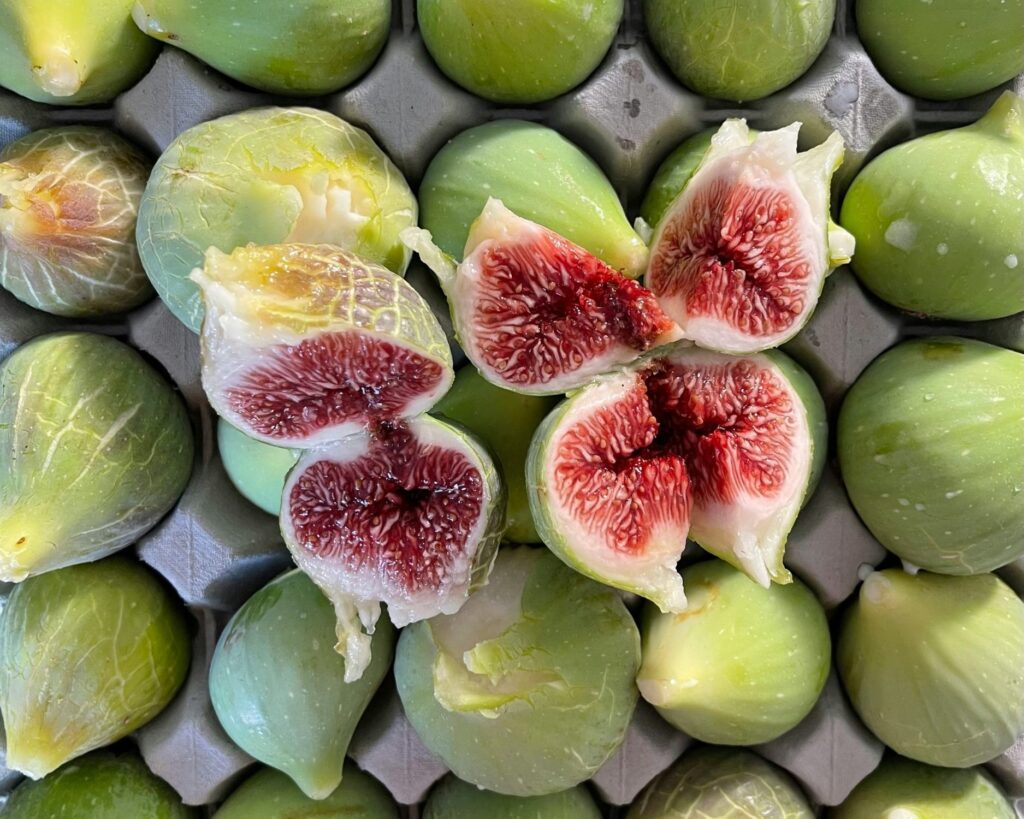
Fibre is essential for maintaining digestive health and supporting hormonal balance, both of which are critical for egg quality. A healthy gut microbiome, nourished by fibre-rich foods, supports nutrient absorption and helps regulate hormones. Regular bowel movements, supported by adequate fibre intake, are also key to eliminating excess hormones that may otherwise disrupt fertility.
Fertility Tip: Aim for 30 grams of fibre per day from plant-based foods like fruits, vegetables, legumes, and whole grains to support both your gut and hormonal health.
By following these five simple yet impactful dietary strategies, you can take significant steps toward enhancing your egg health and improving your chances of conception. Each of these tips plays a crucial role in supporting your fertility journey, from ensuring your body gets the necessary nutrients like folate and omega-3s to reducing exposure to harmful toxins and inflammation. Incorporating these dietary changes not only supports egg quality but also promotes overall hormonal balance and reproductive health. Remember, small adjustments to your daily diet can make a big difference in your fertility potential. Consistency is key, so focus on making these tips a part of your routine as you move forward on your journey to parenthood.
This blog post is written by Sarah Laver.
Sarah is a BANT Registered Nutritionist and Registered Nutritional Therapist, specialising in assisted conception support and fertility. After many years as a clinical embryologist in IVF clinics, where she witnessed the challenges couples face in their fertility journey, Sarah sought alternative ways to help. Through her studies in Psychology and Personalised Nutrition, she discovered the profound impact of diet and lifestyle changes on fertility, especially when combined with behaviour change support.
As the founder of The Embryologist Nutritionist, Sarah is passionate about helping couples and single women regain fertility control and optimise their chances of a healthy pregnancy. Her holistic, personalised approach considers each client’s unique needs, creating bespoke plans that empower individuals on their path to parenthood.
Listen to: Embryology and Egg Health
Follow: Sarah on Instagram here
Discover: Sarah’s website here

Don’t forget to follow our Instagram page for more fertility nutrition tips from our team of certified practitioners.
Or click here, and head to our directory to book a free introductory chat with a team member.
